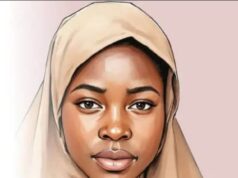 The two leading candidates for the President elections in Nigeria, Africa’s most populous country, scheduled for tomorrow, Saturday have been described as starkly different: one a Christian politician who has struggled with the growing Boko Haram Islamist insurgency; the other is a Muslim and former military ruler known for a crackdown on corruption but also for allegations of serious human rights abuses.
The two leading candidates for the President elections in Nigeria, Africa’s most populous country, scheduled for tomorrow, Saturday have been described as starkly different: one a Christian politician who has struggled with the growing Boko Haram Islamist insurgency; the other is a Muslim and former military ruler known for a crackdown on corruption but also for allegations of serious human rights abuses.The elections are critically important not just for the country but also for the region.
Here are profiles of the two candidates.
Goodluck Jonathan
Jonathan, 57, the current president, is a soft-spoken Christian from the oil-rich Niger Delta in the south. He earned a PhD in zoology and taught and worked on environmental issues before entering politics. He was governor of Bayelsa state from 2005 to 2007, and served as vice president of Nigeria from 2007 to 2010. He was sworn in as president upon the death of his predecessor, President Umaru Musa Yar’Adua, in 2010, and won a four-year term in elections in 2011. His popularity has declined since then as Boko Haram has killed thousands in the north, and corruption scandals have erupted. He belongs to the People’s Democratic Party.
Muhammadu Buhari
Buhari, 72, is a Muslim from northern Katsina state. A retired general, he won fame in 1983 when his troops drove off Chadian soldiers who were trying to annex Nigerian islands in Lake Chad. He became leader of Nigeria after a military coup in December 1983 and ruled until 1985, when he himself was overthrown. During his time as head of state, Buhari cracked down on corruption and was famous for his “War Against Indiscipline,” which featured unusual punishments such as requiring bureaucrats to do frog jumps if they got to work late. His administration jailed critics and repressed the media. He has run unsuccessfully for president three times. Last year, he survived an assassination attempt by Boko Haram. He belongs to the All Progressives Congress.
[myad]






